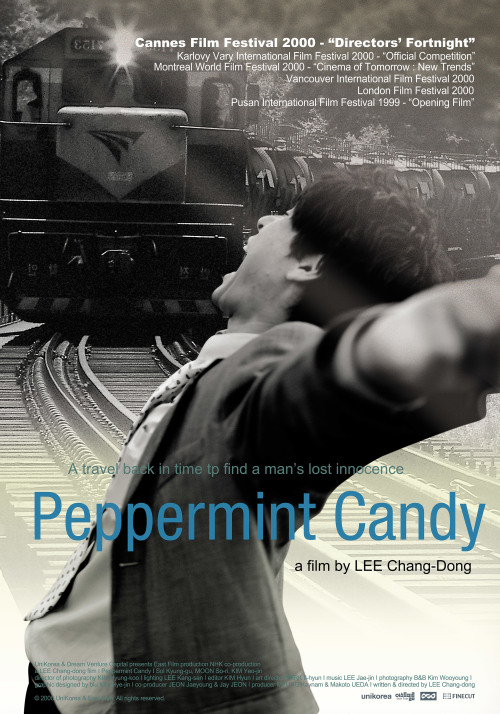Peppermint Candy
Yongho (Sul Kyung-gu) stares down an oncoming train as twenty years of his life flash before his eyes. Proceeding to move backward in time, Lee’ Chang-dong's acclaimed second directorial feature rewinds the protagonist's loss of humanity - from his fraught, self-hating middle age through his callow teens. The moments in between these events, as seen through the lens of Yongho’s oppressive struggles, mirror South Korea’s traumatic political history during the late 20th century.
An official selection of the Directors' Fortnight selection in Cannes and winner of the Special Prize of the Jury at the Karlovy Vary International Film Festival, PEPPERMINT CANDY is a powerful work of Korean New Wave cinema that elegizes a generation of marginalized people with “quiet, heartbreaking power” (The New York Times). Presented in a new 4K restoration.
Director & Cast
- Director: Lee Chang-Dong
- Starring: Sol Kyung-gu
- Starring: Moon So-ri
- Starring: Kim Yeo-jin
Where to Watch
Trailer

Photos
Reviews
- "The end has a quiet, heartbreaking power..."
- "It’s a scathing critique of an entire generation of Korean men, as well as of the country’s institutional default settings as it transformed itself into a democracy, but because it’s Lee’s film, it is Peppermint Candy’s ineluctable shape and pounding melancholy that leaves an ax gash on your memory."
- "Striking, poignant, sad, and uncompromising as ever, Peppermint Candy is a film that stays with you…"
- "A raw work that’s like diving into a festering wound. In a good way."
- "This is Korea's millennial elegy, filtering its search for times past through a confection no less bittersweet than Proust's madeleine."
- "The film offers a heartbreaking drama told in reverse chronology and spanning twenty years in both the life of the main character and the political history of Korea."
- "Peppermint Candy laid the groundwork for the polished, more covertly political dramas about marginalized Koreans — be it by age, ability or affluence — that cemented Lee’s auteur label a few years later: Oasis, Secret Sunshine and Poetry."
- "Peppermint Candy is a compelling and powerful work and necessary to any introduction to the Korean New Wave. "
Don Quijote Award
Karlovy Vary Int'l. Film Festival
Special Prize of the Jury
Karlovy Vary Int'l. Film Festival
Netpac Award - Special Mention
Karlovy Vary Int'l. Film Festival
Best Film
Korean Assoc. of Film Critics Awards
Best Director
Korean Assoc. of Film Critics Awards
Best Screenplay
Korean Assoc. of Film Critics Awards
Best New Actor
Korean Assoc. of Film Critics Awards
C.I.C.A.E. Award
Cannes Film Festival
New Directors/New Films
BFI London Film Festival
Chicago Int'l. Film Festival










